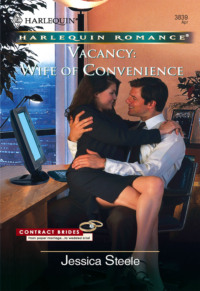
Полная версия
Promise Of A Family
Oh, grief! Taking out her phone, and hoping she had remembered his number correctly—this was not the first time she had cancelled their arrangements—she pressed out the digits—and waited.
‘Keith,’ she said, when she recognised his voice. ‘Leyne Rowberry.’
‘I shall never forgive you if you’re putting me off!’ he stated, in a voice that wasn’t over-brimming with good humour.
‘Wouldn’t dream of it,’ she replied cheerfully. ‘The thing is—er—I wondered if you’d rather come to my place for coffee?’ And quickly, lest he got the wrong idea, ‘I can promise you one of your favourite sumptuous feasts first.’
‘You’re breaking our date!’ he exclaimed heavily, and for a moment Leyne wondered if she even liked him.
‘I’m offering an alternative,’ she answered, concentrating her thoughts on the nicer side of him that she had previously seen.
‘Too late now for me to make alternative arrangements,’ he said—as if she’d be gutted if he couldn’t come!
‘Your choice,’ she offered. If he wanted to try and find a date elsewhere, good luck to him.
The evening was not a success. The meal, if not exactly sumptuous, was good. But, since the girls had helped with the coconut and orange pudding, it seemed churlish not to let them stay and eat with them.
Keith appeared to be making an effort to be charming, but he was obviously not devastated when Pip asked if they could be excused and, armed with various nibbles, she and Alice raced off up the stairs.
Leyne went to the kitchen to make coffee and saw that Keith’s good humour was surfacing when, on her return, he joined her on the sitting room sofa. ‘Sugar?’ she asked, quite aware that he was sitting unnecessarily close. She poured him a coffee and put a few inches of space between them when she got up to reach to the table for the sugar bowl.
‘You really have the most extraordinarily lovely hair,’ he murmured of her light-coloured hair, with its naturally lighter strands of blonde—sugar was all too plainly not his first priority.
‘Cream or milk?’ she offered.
‘Cream,’ he replied, and, looking into her large blue eyes, ‘To go with your lovely complexion,’ he said. And, taking the coffee from her, he placed it down on the low table in front of them and turned as though to take a hold of her. He got as far as, ‘Leyne, beautiful Leyne…’ when hoots of laughter wafted down through the floorboards overhead. ‘Oh, for—!’ he exclaimed impatiently. And, totally put off his stride, ‘Can’t those girls keep quiet?’
‘Not for more than five minutes, I shouldn’t wonder,’ she replied equably.
‘How long will they go on for?’ he asked, sounding hopeful and disgruntled at one and the same time.
‘I’d be very surprised if they settled down this side of midnight,’ Leyne answered. ‘It’s a sleepover,’ she added. She felt sorry for him, even though his hopes for the way the evening would end had never coincided with hers.
She guessed, when shortly afterwards Keith left, that he would not be asking her out again. It was a pity; she liked him a lot of the time. She was not, however, heartbroken.
Dianne Gardner called for Alice around mid-morning the next day, and ten minutes later Leyne rang her mother and asked if it was convenient for her and Pip to drive up to see them. Catherine Rowberry had remarried four years ago, and had generously allowed her two daughters and granddaughter to remain living in their old home when she had moved to Hertfordshire with her new husband.
‘I’d love to see you,’ Catherine answered warmly. ‘Roland has had a heavy cold, but he’s no longer infectious.’
‘Is he up to visitors?’ Leyne asked doubtfully. While sympathising with Roland, she was not wanting her niece to catch his cold, albeit Pip had not suffered an asthma attack in an absolute age.
‘You probably won’t see him. You know how it is—well, perhaps you don’t—but while women have colds, men, as dear as they are, have flu. Roland may say hello, then go and rest.’
‘Fancy going to see Nanna?’ Leyne asked Pip, and saw the lovely dark-haired child’s eyes light up.
‘It’s ages, simply ages, since I last saw Suzie!’ she exclaimed of Roland Webb’s Labrador dog.
Suzie came in handy, in as much as while Pip played in the large garden with the dog, it gave Leyne the chance to have a private conversation with her mother. Roland had heroically made it to his feet to greet them when they arrived, but, as her mother had hinted he might, had retired for a ‘lie-down’.
‘Er—Mum,’ Leyne said, after some minutes of wondering which way to bring up a subject that had an unspoken taboo attached.
Leyne’s pensive expression was not lost on Catherine Webb. ‘This sounds serious?’ she observed.
Leyne looked at her still beautiful fifty-six-year-old parent and knew that there was only one way to say this. ‘Pip wants to know who her father is,’ she stated, but the minute the words were out she saw her mother mentally strapping on armour to defend her firstborn.
‘Maxine intends to tell her when she’s old enough,’ her mother answered, a touch stiffly.
It heartened Leyne that her sister fully intended to tell her offspring of her father. But Leyne knew that she could not leave it there. ‘Pip wants to know now, Mum,’ she said, and insisted, ‘I think she’s old enough now.’
‘She’ll forget all about it soon. It’s only a whim,’ Catherine reasoned.
‘She’s been wanting to know for some while now.’
‘It will pass.’
Leyne did not want to badger her mother, who was already starting to show prickles in her protectiveness of her eldest daughter. ‘I don’t think she will,’ she pressed on. And, knowing her mother had lived in the same house until after Pip had celebrated her seventh birthday, ‘As tractable as Pip is, you know what she’s like once she has set her mind to something.’
Catherine Webb looked exasperated and worried all at the same time. ‘Maxine will want to tell her herself.’
‘Max isn’t here,’ Leyne reminded her mother quietly. ‘I’ve tried countless times to contact her, but her phone isn’t ringing out. And while I have an emergency number for—’
‘I wouldn’t call this an emergency!’ her mother cut in hurriedly. ‘Pip will just have to wait.’
Love her mother though she did, Leyne felt very much like telling her that she was not the one who was guardian to the child; she was not the one who would look up occasionally from whatever she was doing to find Pip looking at her as though she was just bursting to ask how far she had got along with her enquiries.
‘I don’t think it will wait, Mum,’ she stated seriously. ‘I’m worried that it’s preying on Pip’s mind.’ Leyne broke off to try another tack. ‘You must have met her father?’
‘No,’ her mother promptly replied. ‘I never met him.’
Which, since she had always known her parent to be incapable of telling a lie, was something of a body-blow to Leyne. ‘You never—?’ She broke off, something in her mother’s expression seeming to tell her that her mother knew more than she was telling. ‘But you do know who he is?’ she pressed.
Her mother gave her cross look, but did concede, ‘He never came into the house. And it was only a brief affair—over almost before it began.’
‘But it was long enough for Max to fall in love with him?’
Catherine Webb’s expression softened. ‘Oh, yes,’ she said. ‘She loved him.’ A faraway look was in her eyes. ‘Then Maxine came home one night and shut herself in her room. When the next morning I asked her what was wrong—it was obvious she had been crying—she said she wouldn’t be seeing him again. Nor did she. In fact she refused to so much as mention his name ever again.’
‘You know his name, though?’
Her mother sighed and, after a silent tussle with herself, finally gave in. ‘His name is John Dangerfield.’
John Dangerfield. Leyne rolled the name around in her head. But she knew she had never heard of him. ‘Can you tell me anything more about him?’
‘I know very little about him. As I said, I never met him. He rarely came to the house, and the few times he did Maxine would be on the lookout for his car and would dash out to him. Though…’ Her mother hesitated, but only for a moment or two, and then stated, ‘I expect you to use the information judiciously, Leyne. Pip is at a very vulnerable age.’
‘I know it. It’s why I am being very careful here. Anything you tell me I’ll treat with the utmost care,’ Leyne promised. ‘But we have to bear in mind that Pip is likely to grow more and more anxious if I just try to fob her off. And you know yourself how her asthma can be triggered when she gets emotionally upset. I want to avoid anything that might bring on an attack.’
Catherine looked out of the window to where Pip was now seated on a wooden garden bench, quietly talking to Suzie. ‘Poor scrap,’ she said softly of her granddaughter, and confessed, ‘I really don’t know much more than his name, but, in all fairness, I suppose I must allow she has every right to know. John Dangerfield,’ she revealed, ‘is the chairman of a company called J. Dangerfield, Engineers.’
J. Dangerfield, Engineers? Leyne did not know the company, but the company name prodded a tiny wisp of memory—as if she had heard or read something about them recently.
‘Before you go charging in to tell Pip what I’ve told you,’ her mother cautioned, ‘I think it might be an idea to contact him first.’
‘I wasn’t thinking of contacting him at all!’
‘Then I think you should.’ And at Leyne’s look of enquiry. ‘An utter darling though Pip is most of the time, you know how intransigent she can be on the odd occasion.’
‘That’s true enough,’ Leyne had to admit.
And her mother went on, ‘If I know anything at all about my granddaughter, she is not going to want to leave it there.’
‘Ah…’ Leyne murmured. ‘You…Oh, grief—you think she’ll actually want to meet him?’
‘Wouldn’t you?’
Leyne thought about it, and had to acknowledge that she would not want to leave it at just knowing his name. Weakly, realising that she was taking on more than she possibly should, she was very tempted to leave matters until Max returned home. Leyne then made the mistake of glancing out of the window to where Pip was now looking back at her—with that direct kind of look on her face. And Leyne knew then that whatever it took to bring that little girl peace of mind she would do it. ‘You’re right, of course,’ she admitted.
‘Then I suggest you contact him first before you tell her who he is.’
‘Oh, I don’t—’
‘Do it, Leyne!’ her parent instructed sternly. ‘Most definitely do it!’
‘Why definitely?’ she asked, unable to see why she should involve Pip’s father at this stage.
‘Because,’ her mother replied firmly, ‘for all we know he might want to deny paternity. He’s never paid a penny towards Pip’s upkeep after all. Not that Maxine would ever ask for his support; she’s much too proud for that,’ Catherine said with dignity, and Leyne did not have to wonder from where her sister, herself too for that matter, had inherited that pride.
She and Pip were on their way back to their home in Surrey when Leyne was again made to realise that Pip was every bit as bright as she had always thought. ‘You and Nanna were having a good chat,’ she remarked. ‘Was it about me?’ she asked, in her forthright manner.
Leyne saw no reason to lie to her. ‘I thought Nanna might be able to tell me something about your father, and—’
‘Did she?’ Pip asked eagerly. ‘Was—?’
‘Oh, love, try to be patient. I know it’s difficult for you, but it may take quite some while.’
Leyne hated not to be able to tell her what she had learned that day. And, had her mother not insisted she contact the chairman of J. Dangerfield, Engineers, before she acquainted Pip with her father’s name, Leyne might well have said more. But, on thinking about it, Leyne knew that her mother was right and that her niece would not want to leave it there. She would fidget and fidget at it and would not rest until she had met him. Leyne blamed herself that she had not thought it that far through. Pip could be a dogged little miss when she set her mind on anything. And what was more important to her than knowing—and meeting—her father?
Leyne faced then that, having willingly volunteered to act as Pip’s guardian, the task, up until Pip had asked that one important question, had been no task at all. But in her mother’s absence she was the dear child’s guardian, and therefore it was up to her, and no one else, to make whatever decisions were necessary in regard to the child’s welfare. Decisions, no matter how difficult, which were not to be shirked.
With the company name J. Dangerfield, Engineers, to the forefront of her mind, and a certainty growing in her head that she had heard or read some snippet about that firm recently, Leyne had to wait until Pip was in bed before she could take any action.
As luck would have it, there were almost a week’s newspapers awaiting collection for recycling.
After scouring three newspapers, Leyne was beginning to believe her memory for things inconsequential had let her down. But then, on the fourth paper, not in the business section, as she had supposed, she found herself staring at that which had stayed in her retentive brain for no particular reason.
It was a picture of one very good-looking, self-assured male, attending some gala evening. Just good friends? asked the caption, plainly referring to the glamorous and sophisticated-looking brunette hanging on his arm.
Jack Dangerfield, chairman of J. Dangerfield, Engineers, with his current lovely. Will Gina Sansome have more luck with the wily bachelor?
With her heart pounding Leyne studied the picture of the tall, dark-haired man. John Dangerfield, obviously known to all and sundry—with the exception of her mother—by the well-established diminutive form as Jack.
He was good-looking, far too good-looking for his own good in Leyne’s opinion, and, by the sound of it, still unmarried. And that annoyed her—he was running around fancy-free while Max had had to make sacrifices here and there in order that their daughter should want for very little.
Reading on, Leyne thought he looked to be about the same age as Max, perhaps about a year or so older. Young, however, to be chairman of a problem-solving firm of engineers who apparently, so she read, had an international reputation. Well, all she hoped, Leyne mused, was that as well as solving safety engineering problems, he could safely help her solve this particular nearer to home non-engineering problem.
Wondering if the fact that he must have been extremely ambitious to head such a well-respected company at his mid-thirties age was the reason why—not wanting to be tied down—he and Max had parted company, Leyne went to where they kept the telephone directories.
J. Dangerfield, Engineers, had many business lines, she found, but, not knowing Jack Dangerfield’s home address, it was plain she was going to have to contact him through his business.
Something, she discovered the very next morning, that was easier said than done. ‘Can I help at all?’ enquired the second person she spoke to.
‘It’s—er—a personal matter.’
‘Just one moment.’
‘May I help you?’ enquired a third voice.
‘I need to speak with Mr Jack Dangerfield. It’s a private matter,’ she added quickly, before she could be fobbed off.
She was fobbed off just the same. ‘Mr Dangerfield is out of the office for most of this week. Perhaps if you wrote in?’ suggested number three, which was of no help at all.
Feeling frustrated beyond measure, Leyne only just managed to hang on to her manners. ‘Thank you, I will,’ she replied, and came away from the phone finding that she could be every bit as stubborn as the other females in her family when she had to be.
She penned the letter straight away.
Dear Mr Dangerfield,
I need to speak with you on an urgent matter of family business.
She was very tempted to add something to the effect that it was about time he woke up and, instead of squiring elegant females to social functions, devoted some time and attention to his daughter. But she wanted to see him herself first; wanted first to judge if, despite him looking affable enough in his picture, he might turn out to be someone she would not want Pip to have any contact with. So, having written just that brief note, she signed herself, ‘Yours sincerely, Leyne Rowberry.’
And a fat lot of good it did her. A whole week went by, and—having decided not to give her mobile phone number or her office number—she did not want to take his call there but had written both her home phone number as well as her address—she had heard not a word from Mr Jack Dangerfield.
Pip had suffered a small asthma attack yesterday. It had proved nothing to be too alarmed about. But Leyne was concerned, and could not help wondering if the sensitive child was getting herself in something of an emotional stew with regard to her unknown father. Leyne had checked her niece over carefully on Monday morning before deciding she was well enough to go to school.
Leyne waited until ten o’clock and then, regardless that she was at her office, she rang J. Dangerfield, Engineers. ‘Mr Jack Dangerfield, please,’ she said, her tone businesslike. And was put on to voice number two. Leyne dug her heels in. ‘Mr Dangerfield is in today?’ she enquired, in her best professional manner.
‘He is. But he’s very busy. If I could—’
That the man was in business that day was all Leyne needed to know. ‘Thank you,’ she cut in on number two, injecting a smile into her voice—and rang off. Next she rang Dianne Gardner. ‘I have a bit of a problem,’ she began.
‘Anything I can help with?’
‘I may be a bit late collecting Pip tonight,’ she explained, hoping Dianne would think she was working late. ‘Would it be any trouble for her to stay on with you until I can get there?’
‘No trouble at all. Don’t rush. She can have dinner with us,’ Dianne offered. Their reciprocal back-up arrangement was working well.
Leyne went to see her boss just after lunch. ‘I need some time off. Is it all right with you if I work from home?’
Tad Ingleman sighed dramatically. ‘It will be a dull afternoon without you,’ he said, his eyes appreciative of her dainty features and shining hair. But, with the scheduled move to larger premises delayed yet again, ‘If you can clear your desk before you go we can all spread out a bit.’
‘I’ll be in tomorrow,’ she promised, and, armed with work she would have to catch up on that evening, she went to her car. Instead of heading home, though, she made for the offices of J. Dangerfield, Engineers.
Her telephone enquiry had yielded the information that Mr Dangerfield was in, but was busy. She smiled. No problem.
Glad that it was a non-rainy October day, Leyne parked her car and went and found herself a vantage point. Without doubt chairmen as busy as Jack Dangerfield appeared to be did not keep to nine-to-five hours. Though if he was going to work very late—and Leyne was prepared to stay there until midnight if need be—she would have to ring Dianne again.
That phone call, however, proved unnecessary when, at half past four, the main doors of J. Dangerfield, Engineers, opened and a man she instantly recognised from his newspaper picture came, briefcase in hand, out through the doors.
He was a fast mover, and was down the steps before she had got over her surprise and budged an inch. Then she was galvanised into action. Fortunately he was heading her way.
‘Mr Dangerfield!’ She accosted him before they drew level.
His eyes flicked over her neat and curvaceous figure, taking in her lovely face and hair, and superb blue eyes. ‘You have the advantage,’ he paused to drawl charmingly.
‘Leyne Rowberry,’ she supplied, and looked into his eyes for a flicker of recognition at her name. There was none, but a small gasp of breath escaped her. Oh, my word, those eyes! There was no need to ask from where Pip had inherited her lovely green eyes. Nor too her jet-black hair. ‘Er—I wrote to you.’ She gathered herself back together to explain.
‘You did?’ He glanced at his watch, all too plainly a man in a hurry.
‘You didn’t reply.’
‘And what did you write about, Miss Rowberry?’ he enquired, everything about him telling her she had about five seconds before he strode off and left her standing there.
‘It’s a family matter,’ she replied, adding for good measure, lest he thought the problem was solely hers, ‘Your family.’
He did not like that. All too clearly, as a chilly expression came over his good-looking features, his family were sacrosanct. He made to move off.
There was no time to dress it up. ‘To be more precise, I wrote to you because of your daughter!’ she said quickly.
That stopped him dead in his tracks. ‘My what?’ he demanded, an expression of such total astonishment replacing his chilly look that Leyne had the most appalling sensation that he did not even know he had a daughter.
Immediately she discounted that notion. That couldn’t be right—could it?
Конец ознакомительного фрагмента.
Текст предоставлен ООО «ЛитРес».
Прочитайте эту книгу целиком, купив полную легальную версию на ЛитРес.
Безопасно оплатить книгу можно банковской картой Visa, MasterCard, Maestro, со счета мобильного телефона, с платежного терминала, в салоне МТС или Связной, через PayPal, WebMoney, Яндекс.Деньги, QIWI Кошелек, бонусными картами или другим удобным Вам способом.












